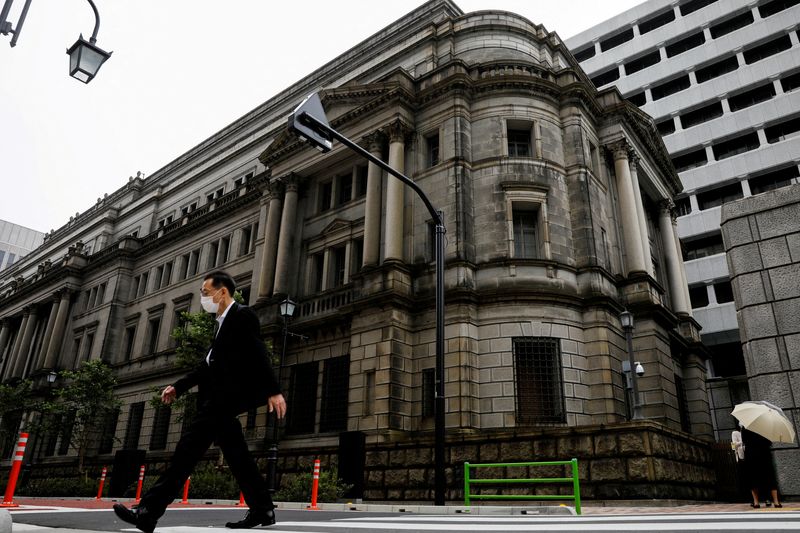A look at the day ahead in markets from Tommy Wilkes.
Even the arch-dove among central banks, the Bank of Japan appears to be getting comfortable with higher interest rates -- a stark sign of policymakers' acceptance that this month's dramatic bond market selloff will not be going into reverse.
With Japan's long-term inflation expectations and wage growth still muted, the BoJ was always seen as the bank that would act to arrest a rise in yields. But on Friday, it refrained from stepping into the market, even as the 10-year government bond yield rose to a six-year high.
That's above the level at which it had offered to buy an unlimited amount of debt in February.
Graphic: Japan govt bond yield: https://fingfx.thomsonreuters.com/gfx/mkt/lbvgnmoerpq/japan%20yields.PNG
Japanese borrowing costs are being pulled higher by yields worldwide, which have risen along with expectations for a more aggressive pace of rate hikes by the U.S. Federal Reserve and other central banks.
Granted, 10-year Japanese yields are only at 0.24%, but that is double the levels of early-March. The bond moves and the BOJ's failure to intervene also helped the yen bounce off six-year lows to the dollar, rising as much as 1% higher at one point
Yields in the U.S. and euro zone have calmed in recent days after soaring this month but remain at multi-year highs -- the 2-year U.S. Treasury yield is up 72 basis points, its biggest monthly rise since 2004.
Markets elsewhere appear set for a mixed day at the end of a week when investors mostly looked past a month of war in Ukraine and bid up share prices, which are back above levels before the war started.
That's despite recession signals emanating from U.S. bond yield curves and a drumbeat of lacklustre economic data - Britsh February retail sales were worse than expected.
There is little in the way of other important economic data due on Friday and much attention was on the NATO summit in Brussels that aimed to show a united Western front against Russia's month-long invasion of its neighbour.
Key developments that should provide more direction to markets on Friday:
-German IFO
-New York President John Williams, Richmond President Thomas Barkin, Governor Christopher Waller speaks

-Norway Central Bank Governor Ida Wolden Bache speaks
-University of Michigan inflation expectations